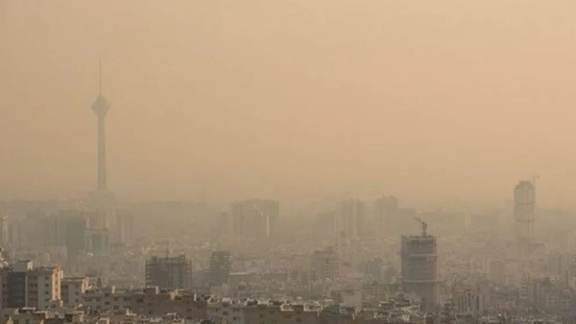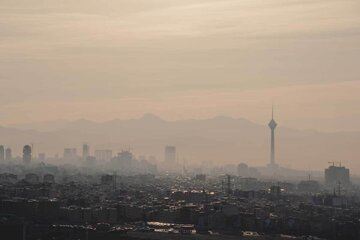Tehran's air pollution halts schools, football matches

The worsening air pollution in Tehran has prompted authorities to suspend in-person classes, restrict vehicle movement, and cancel sports activities to protect public health.
The Deputy Coordinator for Urban Affairs of Tehran Province announced Saturday that kindergartens, preschools, and special education institutions would remain closed on Sunday, with elementary school classes shifting online for the day.
“Given the ongoing air pollution, educational activities...will be suspended,” the official said, adding that such actions aim to reduce exposure to the harmful effects of polluted air. Additionally, government offices may face closures or reduced working hours if air quality deteriorates further, pending approval from the Ministry of Interior.
Traffic restrictions are being tightened to curb pollution. Firooz Kashir, Social Deputy of Tehran's Traffic Police, announced a 48-hour ban on diesel trucks in the capital.
He also added that targeting vehicles operating without technical inspections remains a police priority.
Football matches across Tehran Province, including youth and adult categories, were canceled for Sunday to protect players and coaches. Authorities cited the risk of respiratory and cardiovascular harm caused by the capital’s hazardous air quality as the primary reason for the cancellations.
The Health and Climate Change Department of the Ministry of Health reported in January that 14% of natural deaths in Iran are linked to air pollution. The use of mazut, a low-grade fuel oil commonly burned in power plants and industries, significantly worsens the crisis. High levels of particulate matter released from mazut combustion exacerbate respiratory and cardiovascular diseases, placing further strain on public health systems.
Air pollution in Iran stems from systemic neglect and mismanagement of the electric grid and natural gas production that necessitate burning highly pollutant fuels. Tehran, in particular, faces pollution challenges due to overpopulation, poor urban planning, and outdated infrastructure.

Aging vehicles, insufficient public transportation, and weak enforcement of vehicle inspection laws contribute heavily to the crisis. Industrial reliance on low-quality fossil fuels further compounds the problem, as does the government’s inability to modernize systems or invest in cleaner technologies.
While officials often blame citizens for overusing private vehicles, analysts point to government policies as the root cause. Subsidized energy prices encourage overconsumption, and industrial practices remain outdated and poorly regulated. Urban sprawl and deforestation exacerbate dust storms, further degrading air quality. By shifting blame to the public, the government diverts attention from its failure to implement effective policies or enforce environmental regulations.
As Tehran continues to grapple with hazardous air pollution, short-term measures like school closures and vehicle restrictions provide only temporary relief. Without a strategic shift toward sustainable practices and modernized infrastructure, Tehran's residents are likely to face recurring health and environmental challenges.